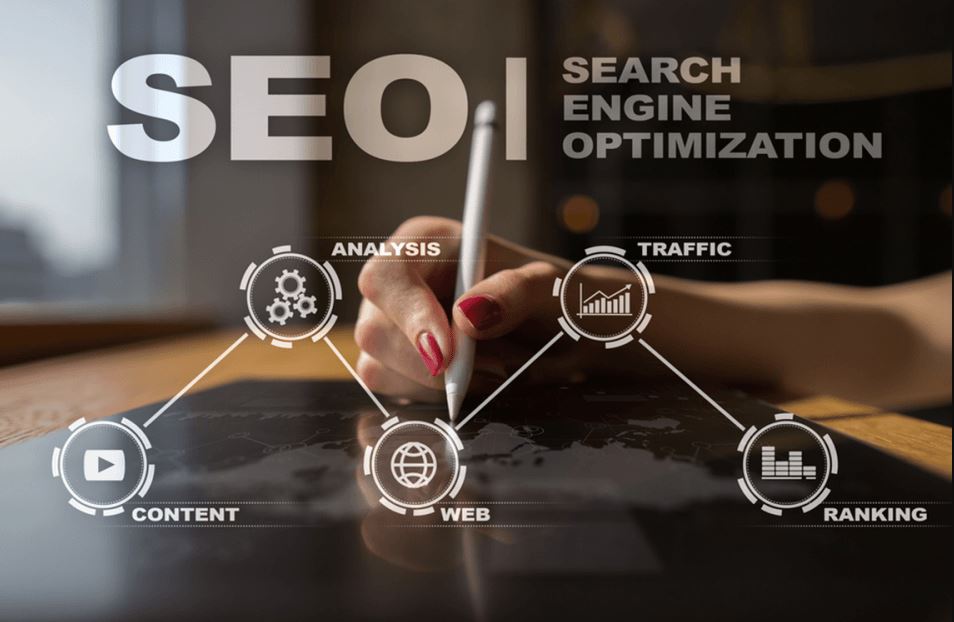Services and Effectiveness of SEO Agencies - How Can They Help You

Understanding seo agencies
In the digital era, where online visibility can make or break a business, Search Engine Optimization (SEO) has become a critical component of digital marketing strategies. SEO agencies are specialized firms that help businesses improve their online presence, drive organic traffic, and ultimately increase sales and revenue. But how exactly do SEO agencies operate, and what services do they offer to enhance their clients' online visibility? This article explores the various services provided by SEO agencies and evaluates their effectiveness in helping businesses achieve their goals.
Comprehensive seo audit
Identifying strengths and weaknesses
An SEO audit is the first step any reputable SEO agency will take when beginning a project. This comprehensive analysis evaluates the current state of your website’s SEO. The audit identifies strengths, weaknesses, opportunities, and threats related to your online presence. It involves checking your website's technical health, on-page SEO elements, off-page SEO, and overall content strategy.
Key components of an seo audit
Technical SEO: Examining site speed, mobile-friendliness, indexation, and crawlability.
On-Page SEO: Assessing keyword usage, meta tags, header tags, and content quality.
Off-Page SEO: Evaluating the quality and quantity of backlinks and social signals.
Content Analysis: Reviewing content for relevance, quality, and SEO optimization.
Benefits
Conducting an SEO audit helps in understanding the current SEO standing of your website and forms the foundation for an effective SEO strategy. It allows SEO agencies to pinpoint issues that need immediate attention and opportunities for improvement.
Keyword research and strategy
Finding the right keywords
Keyword research is a vital service offered by SEO agencies. It involves identifying the terms and phrases that potential customers use when searching for products or services similar to what your business offers. This process is crucial because it helps in creating content that is relevant and attractive to your target audience.
Tools and techniques
Competitor Analysis: Looking at the keywords competitors are ranking for.
Search Volume and Difficulty: Analyzing the search volume and ranking difficulty of potential keywords.
Long-Tail Keywords: Focusing on more specific, less competitive phrases that can drive targeted traffic.
Benefits
Effective keyword research ensures that your website is optimized for terms that have a high potential to attract relevant traffic. It aligns your content with what your audience is searching for, thereby increasing the chances of ranking higher in search engine results pages (SERPs).
On-page optimization
Optimizing content and html
On-page SEO refers to the optimization of individual web pages to rank higher and earn more relevant traffic. SEO agencies optimize both the content and HTML source code of a page.
Key activities
Meta Tags: Writing optimized meta titles and descriptions that include targeted keywords.
Header Tags: Structuring content using H1, H2, H3 tags to improve readability and SEO.
Content Quality: Ensuring that the content is valuable, relevant, and incorporates keywords naturally.
Internal Linking: Creating a network of links within your website to improve navigation and distribute link equity.
Benefits
On-page optimization improves the relevance and quality of your web pages. It helps search engines understand the context of your content and enhances user experience, which can lead to higher rankings and increased traffic.
Technical seo
Enhancing technical aspects
Technical SEO focuses on improving the technical aspects of your website to ensure that search engines can crawl and index it effectively. This involves optimizing site speed, mobile-friendliness, and overall site architecture.
Key activities
Site Speed Optimization: Reducing load times to enhance user experience and improve rankings.
Mobile Optimization: Ensuring your site is mobile-friendly as search engines prioritize mobile-first indexing.
Sitemap and Robots.txt: Creating and optimizing these files to guide search engines.
Structured Data: Implementing schema markup to help search engines understand your content better.
Benefits
Technical SEO ensures that your website is accessible and functional for both users and search engines. By addressing technical issues, you can improve your site’s performance, which positively impacts rankings and user experience.
Content creation and marketing
Producing valuable content
Content is the backbone of any successful SEO strategy. SEO agencies often provide content creation services, producing high-quality, relevant content that resonates with your audience and attracts organic traffic.
Types of content
Blog Posts: Regular articles on topics relevant to your audience.
Infographics: Visual content that presents information in an engaging way.
Videos: Engaging video content that can be shared across platforms.
E-books and Whitepapers: In-depth content pieces that provide valuable insights.
Benefits
Creating valuable content helps in attracting and retaining visitors. It establishes your brand as an authority in your industry, increases engagement, and improves your chances of ranking higher in search results.
Off-page optimization
Building authority through backlinks
Off-page SEO refers to actions taken outside your website to impact your rankings within SERPs. The most significant aspect of off-page SEO is link building, which involves acquiring high-quality backlinks from other websites.
Key strategies
Backlink Building: Acquiring links from reputable and relevant websites.
Social Media Marketing: Promoting content on social media platforms to increase visibility and engagement.
Guest Blogging: Writing articles for other websites to gain exposure and backlinks.
Influencer Outreach: Collaborating with influencers to promote your content and gain backlinks.
Benefits
Off-page optimization helps in building your site’s authority and credibility. High-quality backlinks signal to search engines that your site is trustworthy and relevant, which can improve your rankings and drive more traffic to your site.
Local seo
Targeting local customers
Local SEO focuses on optimizing your online presence to attract more business from relevant local searches. This is particularly important for businesses with physical locations or those serving specific geographic areas.
Key activities
Google My Business Optimization: Creating and optimizing your Google My Business profile.
Local Citations: Ensuring your business information is consistent across local directories.
Customer Reviews: Encouraging and managing online reviews from local customers.
Localized Content: Creating content tailored to the local audience.
Benefits
Local SEO helps in improving your visibility in local search results, driving more foot traffic to your physical location, and attracting customers from your specific geographic area.
Analytics and reporting
Measuring performance
SEO agencies provide detailed analytics and reporting services to track the performance of your SEO campaigns. This involves using various tools to monitor key metrics and provide insights into the effectiveness of your strategies.
Key metrics
Organic Traffic: The number of visitors coming from search engines.
Keyword Rankings: The positions of your target keywords in search results.
Conversion Rates: The percentage of visitors who take a desired action on your site.
Bounce Rates: The percentage of visitors who leave your site after viewing only one page.
Benefits
Analytics and reporting help in understanding the impact of your SEO efforts. They provide valuable insights that can be used to refine strategies, address issues, and continuously improve your SEO performance.
Effectiveness of seo agencies
Expertise and experience
One of the primary reasons to hire an SEO agency is their expertise and experience. SEO is a complex and ever-changing field that requires a deep understanding of search engine algorithms, user behavior, and best practices. SEO agencies employ experts who stay updated with the latest trends and changes, ensuring that your website remains competitive.
Time and resource efficiency
SEO is a time-consuming process that requires continuous effort and attention. By outsourcing SEO to an agency, businesses can focus on their core operations while professionals handle the intricacies of SEO. This approach not only saves time but also ensures that SEO strategies are executed effectively and efficiently.
Long-term results
SEO is not a one-time task but an ongoing process. The efforts put into optimizing a website can have long-term benefits. A well-implemented SEO strategy can continue to drive traffic and generate leads long after the initial investment. SEO agencies focus on sustainable practices that yield lasting results.
Cost-effectiveness
While hiring an SEO agency involves an initial investment, it can be cost-effective in the long run. The increase in organic traffic and improved website performance can lead to higher revenue and return on investment (ROI). Additionally, SEO is more sustainable than paid advertising, which stops generating benefits once the budget runs out.
Customized strategies
Every business is unique, and so are its SEO needs. SEO agencies offer customized strategies tailored to the specific goals and challenges of a business. Whether it's targeting a specific audience, focusing on local SEO, or improving technical aspects, agencies can develop strategies that align with your business objectives.
Access to advanced tools
SEO agencies have access to a variety of advanced tools and technologies that can enhance the effectiveness of their efforts. These tools provide insights into keyword performance, backlink profiles, site analytics, and more. By leveraging these tools, agencies can make data-driven decisions and implement more effective strategies.
Focus on user experience
SEO is not just about pleasing search engines; it's also about providing a great user experience. SEO agencies focus on optimizing various aspects of your website, such as speed, mobile-friendliness, and content quality, which enhances the overall user experience. A better user experience can lead to higher engagement, more conversions, and improved search rankings.
choosing the right seo agency
Defining your goals
Before choosing an SEO agency, it’s essential to clearly define your goals. Are you looking to increase traffic, improve conversions, or enhance your local presence? Understanding your objectives will help you find an agency that aligns with your needs and has the expertise to achieve your goals.
Evaluating expertise and experience
Look for agencies with a proven track record and expertise in your industry. Check their case studies, client testimonials, and portfolio to assess their capabilities and experience. An agency with experience in your specific industry will have a better understanding of your audience and challenges.
Assessing communication and transparency
Effective communication and transparency are crucial when working with an SEO agency. Ensure that the agency provides regular updates, reports, and is open about their strategies and methods. A transparent agency will keep you informed about the progress and any changes in the strategy.
Considering the scope of services
Determine the scope of services you need. Do you require comprehensive SEO solutions, or are you looking for specific expertise in areas like technical SEO, content creation, or local SEO? Choose an agency that offers the services that align with your needs.
Evaluating pricing and contracts
SEO agencies offer various pricing models, including monthly retainers, project-based fees, and performance-based pricing. It’s essential to understand the pricing structure and what services are included in the package. Additionally, review the contract terms and ensure there are no hidden fees or long-term commitments that may not be in your best interest.
Partnering with an SEO agency can significantly enhance your online presence and drive your business forward. By leveraging their expertise, resources, and innovative strategies, you can achieve your digital marketing goals and stay ahead in the competitive online landscape. Whether you’re a small startup or a large enterprise, an effective SEO strategy implemented by a professional agency can provide significant returns and drive your business toward success.
